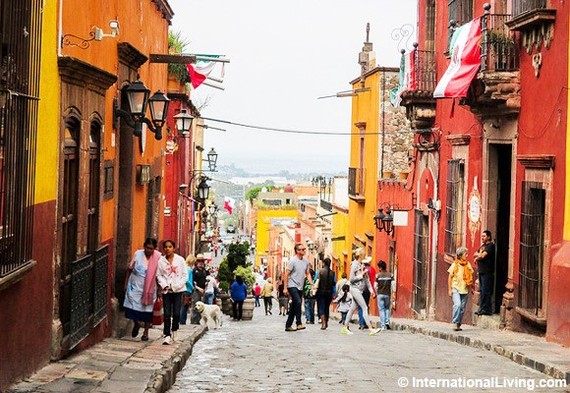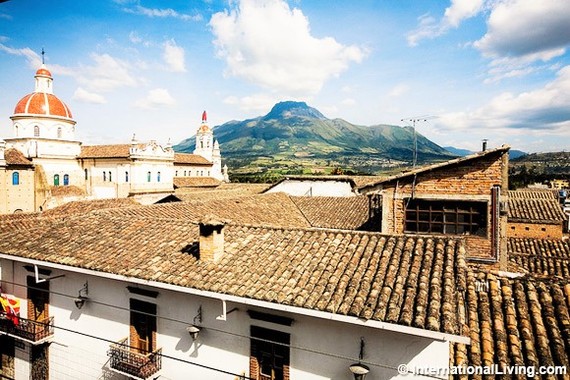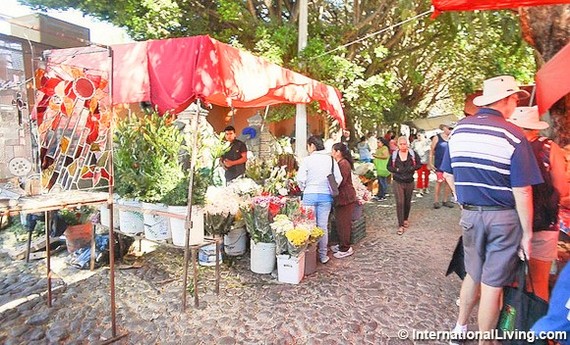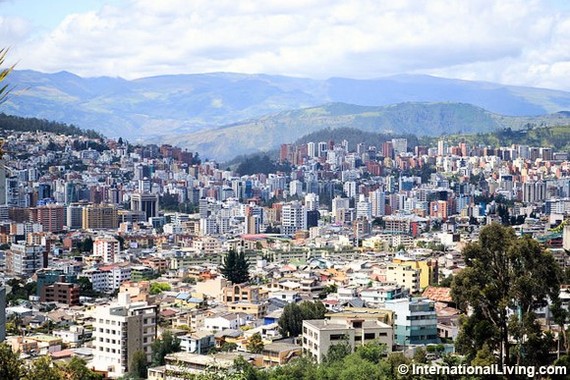By Dan Prescher, InternatioalLiving.com

San Miguel de Allende, Mexico
As exciting and adventurous as the idea of moving abroad can be, it sometimes packs a little zing of anxiety with it. It's the anxiety you feel when you wonder how safe you'll be in a foreign country.
It's a perfectly natural feeling. Safety -- for ourselves and our loved ones -- is one of our most basic needs. None of the other benefits of living abroad mean much to us if we don't think we'll be safe in our new home.
Unfortunately, much of how we feel about the safety of places around the world comes from news coverage ... and mainstream news rarely covers the good stuff. "If it bleeds, it leads" has been the golden rule of TV and newspaper journalism since TVs and newspapers have been around. View of Cotacachi Volcano, Cotacachi, Ecuador
View of Cotacachi Volcano, Cotacachi, Ecuador
And if news coverage -- or stories on Facebook, Twitter, and other social media sites -- are what you go by to judge how safe a country is, there wouldn't be many places you'd choose to live. Bad things happen everywhere. And it's now only a matter of seconds before they are reported or shown in graphic detail on any Internet-connected computer, smartphone, or tablet around the world.
It would be enough to keep you from leaving your home country ... if your home country wasn't one of the places where so many of these awful things you see on the news actually happen.
What's a safety-conscious person to do?
Based on my own personal experience, here are a few things to keep in mind.
First, if you're wondering about any of the places we cover as potential expat destinations, know that we wouldn't recommend these places if they were dangerous.
Case in point: My wife, Suzan Haskins, and I have lived in three different spots in Mexico during our 15 years abroad. From Mexico's reputation in U.S. news coverage, you'd think we were taking our lives in our hands. But each place we lived in Mexico had a lower homicide rate than many similar-sized U.S. cities.
Which brings up the second point to remember: Crime is a localized thing. An extremely dangerous neighborhood in one major city can give a huge boost to that country's official crime rate. That neighborhood is obviously one you wouldn't want to live in. But other places in that city or country could be ideal retirement destinations. Just think of the neighborhoods in your own city you wouldn't choose to retire in. The rest of the world is no different. You can get mugged almost anywhere if you try hard enough.
Just go to a part of town you're not familiar with and look like you have a lot of money and don't know your way around. Better yet, do so late at night, after having a few too many drinks in a bar or nightclub where everyone heard you fumble with the language and saw where you keep your wallet.
This is something you probably wouldn't do in your own town or city. So why would you do it in another country?
Wednesday Market, Ajijic, Jalisco, Mexico
Truth be told, in most of the places Suzan and I have lived abroad, the chances are actually much better that someone in that bar would make sure you got back home safely, even if they had to take you back themselves. We've seen it happen more than once. Especially in places that pride themselves on civility and friendliness (as almost every Latin American and Asian city we've ever been in seems to do), people will often go out of their way to aid an unwary foreigner -- even one determined to make a target of himself.
Which brings up another point. Some expats feel that having the normal awareness of their surroundings and taking the normal precautions that they would back home is somehow an admission that their new home isn't safe. It's as if being mindful of their surroundings and not doing anything foolish in their new home mean they've made a poor choice in locations.
Believe me, we've lived in some very safe places ... places where, nine times out of 10, you could leave your door unlocked while you were away for the weekend, or walk around town late at night with money hanging out of your pockets, without worry. We're talking Mayberry safe.
But there is no place where we've actually done that, even if we could. As one long-time expat once told us, "I trust everybody. But I cut the cards just the same." Even Mayberry had a jail, and for a reason. Most successful expats do this. They trust, but they verify. They take the same common-sense precautions and practice the same awareness no matter where on the planet they live.
In our time abroad, Suzan and I have learned that personal safety has as much to do with how we live as where we live. We've chosen to live in some of the most beautiful, peaceful, and affordable places on the planet, and we have never worried about our personal safety.
But we've never taken it for granted, either. We've maintained the same awareness of our surroundings in Mérida, San Juan del Sur, Panama City, and Quito that we have in San Miguel de Allende, Ajijic, Cotacachi, and anyplace else we've happened to be.
So far, so good.
View of the Quito Bowl, Quito, Ecuador
This article comes to us courtesy of InternationalLiving.com, the world's leading authority on how to live, work, invest, travel, and retire better overseas.
Related Articles
Top 5 Reasons Why You Should Retire To Cuenca, Ecuador
Don't Let Fear Hold You Back From Your Dream Retirement
Rent for $450 a Month in Captivating Cotacachi
Earlier on Huff/Post50:

